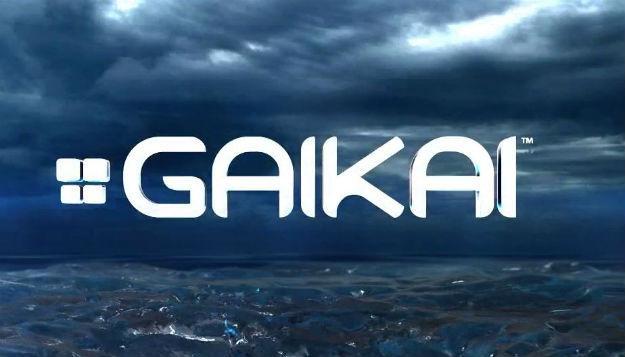The United Kingdom’s Competition and Markets Authority (CMA) delivered a shocker this week when it blocked Microsoft’s acquisition of Activision Blizzard on Wednesday. While a lot of focus on Microsoft’s fight was centered around whether or not the acquisition would give Xbox consoles an unfair advantage over PlayStation consoles, what ultimately decided it was a much smaller market: cloud gaming.
The idea of being able to stream the game you’re playing from the cloud has existed for well over a decade. Cloud gaming’s relevance to the video game industry has only grown over the past several years thanks to both failed and successful efforts from big tech companies like Google, Amazon, and, most importantly, Microsoft. Still, cloud gaming is considered relatively niche, with Activision Blizzard Bobby Kotick calling it "inconsequential" in an interview with Bloomberg and UCL Associate Profession Joost Rietveld saying it’s not a distinct market in a submission to the CMA.
Despite those pleas, the CMA claims that cloud gaming is a “nascent market” and that “already strong incumbent in this market even stronger” in its 418-page report on the matter. Following the CMA’s decision on Wednesday, I spoke to several different analysts to find more clarity about how big Microsoft is in the cloud gaming space and why the CMA should feel compelled to intervene. While experts mostly side with Microsoft over the CMA on this decision, one greater truth emerged from these discussions. Whether one thinks cloud gaming is relevant to this acquisition or not, this emergent style of gaming has reached a point of no return where it'll be instrumental to the video game industry going forward.
Microsoft, king of cloud gaming
Cloud gaming may sound like a niche within the industry, but that's not entirely accurate. BrandFinance Managing Director Laurence Newell tells Digital Trends that “cloud-based services account for over 70% of Microsoft’s brand value, amounting to a staggering $137.5 billion.” That’s quite an eye-catching number that understandably would raise a regulator's alarm bells. However, Newell admits that gaming only makes up 8.5% of Microsoft’s revenue, and cloud gaming is an even smaller amount of that slice.
Despite its relatively small impact on the wider company, most of the experts I spoke to agreed that Microsoft has emerged as a cloud gaming leader thanks to its compatibility with a large segment of the Xbox Game Pass Ultimate library. Conversely, Activision Blizzard has had almost no cloud gaming presence outside of one Sekiro: Shadows Die Twice port on Google Stadia before that service’s shutdown. If it were to be acquired, it is inevitable that more Activision Blizzard games would likely come to cloud-based gaming services.
Despite the shutdown of Google Stadia and the relatively small brand value received from cloud gaming compared to the rest of the company, the CMA still points out in the press release about its decision that “monthly active users in the U.K. more than tripled from the start of 2021 to the end of 2022. It is forecast to be worth up to 11 billion British pounds globally and 1 billion pounds in the U.K. by 2026.” Associate Professor of Strategy and Entrepreneurship at the UCL School of Management Joost Rietveld, who has also been a consultant for Microsoft during its acquisition process, challenges the notion that cloud gaming as a whole is a single market.
Instead, Rietveld splits it into four categories, placing Xbox Game Pass into a category called “cloud gaming as a feature,” which is when it’s “offered as part of a consumer-facing distribution platform” or “included within a bigger bundle of services provided by the platformer.” Under Rietveld’s view, services like Nvidia GeForce Now, Ubitius, and EE -- all of whom Microsoft has made individual deals to bring Activision Blizzard and Xbox Game Studios titles to -- fall into different categories and thus shouldn’t be considered or directly compared to Xbox Game Pass. No matter how they’re categorized now, the real question mark looming over the technology is its future growth, according to Omdia Senior Principal Games Analyst Steve Bailey.
“Will it remain a niche additional service or become the gaming platform of the future?” Bailey asks in his statement to Digital Trends. “Our projection is that cloud gaming is growing rapidly (revenue should more than double by 2026), but it’s still a long way from taking over the games market, so it remains arguable either way.”
“Arguable” stands out as the keyword to me here. Like any emergent technology, we’re heavily debating the positives and negatives of cloud gaming, specifically through the lens of this acquisition. But what exactly is it that the CMA sees in Microsoft that worries them?
The CMA’s problem with Microsoft
“The CMA’s argument is not that acquiring Activision Blizzard would allow Microsoft to dominate the console market as a whole, where Sony and Nintendo have strong positions relative to Xbox, but only that it would help it to achieve a dominant position in cloud gaming specifically,” Bailey tells Digital Trends. “Microsoft and Activision Blizzard will likely argue that this is disproportionate, given the relatively small scale of the cloud gaming market.”



